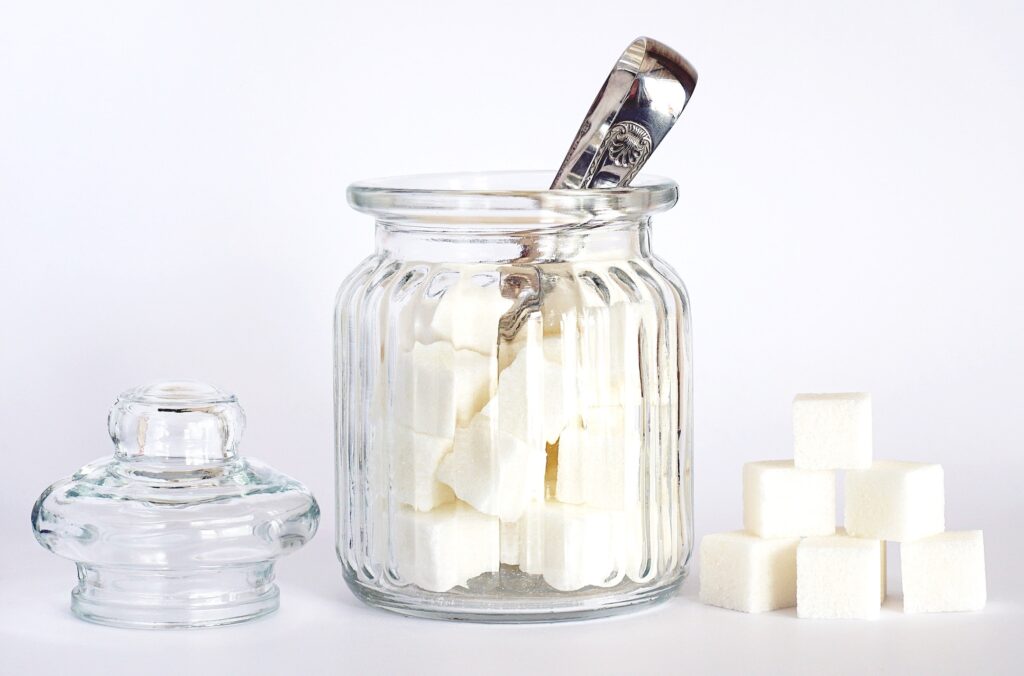
For some African Americans, the term “the sugar” is used colloquially to describe someone with high blood sugar levels, often indicating they have full-blown diabetes. You might hear phrases like “He’s got the sugar.”
Lavell Crawford Comedian – “The Sugar”
The relationship between sugar and Black communities can be complex. Traditional soul food diets, known for their generous use of meat, fats, and sugars, pose a significant risk of health-related issues. This type of diet has been associated with obesity, heart disease, and strokes. With sugar making its way into various dishes, from greens to spaghetti sauce, and even our beloved grits laden with sugar and butter, it’s clear that unhealthy sugar levels have become dietary staples for many Black families.
When it comes to sugary desserts, the temptation is undeniable. That slice of chocolate cake, with its decadent layers and sweet frosting, can be almost irresistible. But beyond the alluring taste lies a scientific reality that we can’t afford to overlook. While indulging in sugary treats in moderation can add delight to life, the excessive consumption of high-sugar foods can have significant short-term and long-term impacts on our health. Let’s delve into the science behind these sweet temptations and discover how to strike a balance that promotes well-being.
The Science of Sugar and Saturated Fats
Sugar is a bit of a mixed bag when it comes to health. It’s naturally present in all foods with carbohydrates, like fruits, veggies, grains, and dairy. Eating these whole foods with natural sugar is perfectly fine. They also provide lots of good stuff like fiber, minerals, and antioxidants (in plants) or protein and calcium (in dairy).
The trouble starts when you go overboard with added sugar. This is sugar that food makers put into products to make them taste better or last longer on the shelf.
A study from 2014, published in JAMA Internal Medicine, led by Dr. Hu and his team, uncovered a link between a high-sugar diet and a higher risk of dying from heart disease. Over 15 years, people who got 17% to 21% of their daily calories from added sugar had a 38% greater chance of dying from heart problems compared to those who limited their added sugar intake to just 8% of their calories.
In simpler terms, the more added sugar you consume, the greater your risk of heart disease, according to Dr. Hu.”Basically, the higher the intake of added sugar, the higher the risk for heart disease,” says Dr. Hu.
A lot of sweet treats, like cakes, have butter in them, which has something called “saturated fats.” Saturated fats can temporarily increase levels of low-density lipoprotein (LDL) cholesterol in the blood, often referred to as “bad” cholesterol. This means that these fats can give your “bad” cholesterol (the LDL kind) a temporary boost. It’s like they tell your liver to make more of the not-so-great cholesterol.
But wait, it gets a bit worse with store-bought cakes. Some of those also have something called “trans fats,” which are terrible for your heart. These sneaky trans fats not only hike up your LDL cholesterol, but they also give a kick to your “good” cholesterol, known as high-density lipoprotein (HDL). So, it’s a double whammy, and not in a good way. This is what is happening to your body:
Refined sugars, which can lead to a temporary increase in triglyceride levels in the blood, can prompt the liver to convert this sugar into triglycerides, a type of fat in the blood. High levels of triglycerides can lead to an increase in blood viscosity, making it more difficult for blood to flow smoothly through arteries. This thickness can impact circulation and potentially lead to health problems over time.
Processed foods, can take a toll on vital organs such as the kidneys and liver. These organs are responsible for filtering waste and metabolizing substances, including sugars and fats. The excess consumption of sugary and high-fat foods can overwhelm the liver, causing it to convert sugars into fats like triglycerides, as mentioned earlier. This can lead to fatty liver disease, a condition that can worsen over time.
The negative impact extends to the cardiovascular system. Elevated levels of LDL cholesterol can lead to the accumulation of cholesterol in the arterial walls, potentially contributing to atherosclerosis. This buildup can narrow and stiffen arteries, impacting blood flow and increasing the risk of heart disease. High levels of triglycerides and LDL cholesterol can also impair the function of the endothelium, the inner lining of blood vessels, affecting blood vessel dilation and constriction, ultimately leading to problems regulating blood pressure.
A diet in high sugar intake can contribute to inflammation within the blood vessels, as reflected by increased inflammatory markers like C-reactive protein. This pro-inflammatory environment can harm the endothelium and vessel walls. Furthermore, elevated LDL cholesterol and triglycerides can create oxidative stress, an imbalance between free radicals and antioxidants in the body. This stress can damage blood vessel walls, promoting atherosclerosis and further compromising cardiovascular health.
In some cases, very high triglyceride levels can lead to the formation of blood clots, disrupting blood circulation and potentially leading to thrombotic events.
Finding Balance for Health
While the scientific impact of sugary desserts on the body is evident, this doesn’t mean we must completely eliminate them from our lives. Instead, it highlights the importance of balance and moderation. Enjoying that occasional slice of chocolate cake is perfectly fine, as long as it’s part of a balanced diet.

To create this balance, we can change our perception of sugary treats. Rather than indulging without restraint, consider the long-term effects of your choices. Educate yourself about the physical impact of consuming these treats on your body, both immediately and in the long term. Yaah! has created A Secret Formula for Success to help you reshape your perception from one extreme “Oh, but it tastes sooo good!” to the other “Chocolate covered diabetes” so that you can find a healthy happy medium. By finding a healthy balance and changing our perception of these indulgences, we can savor the sweetness of life without compromising our health. Remember, it’s not about strict dietary regimens but about informed choices and moderation. Your health and taste buds can coexist harmoniously.
Leave a Reply